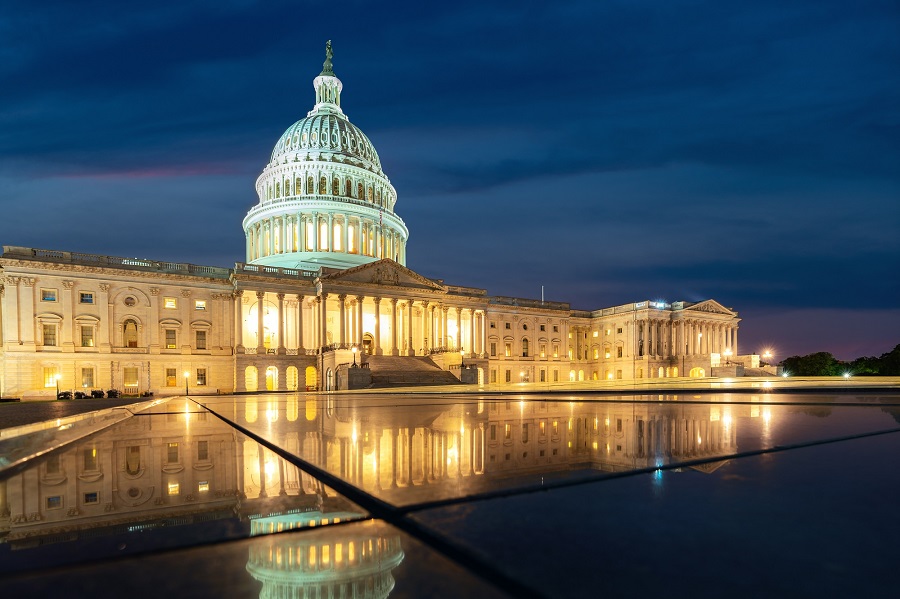New Legislative Initiatives in D.C. to Keep an Eye On

This is a potentially exciting time for our industry, as several bills wending their respective ways through Congress may have far-ranging impacts on how people save for retirement – and how the government can help them.
Of course, partisanship and the ever-present trouble with prioritizing what the House and the Senate will formally consider remain significant roadblocks. Nevertheless, I thought it a good time to examine four bills — S. 2602, S. 2601, S. 2600 and S. 2603 – which were reintroduced on August 4th by Senators Todd Young (R-IN) and Cory Booker (D-NJ).
The Retirement Security Flexibility Act (S. 2602) would improve access to retirement plans and protect against burdensome regulatory requirements. Title I, “Expanding Coverage And Increasing Retirement Savings,” would:
- Expand access to retirement-savings vehicles by giving employers more flexibility when setting up 401(k) plans.
- Modify the existing automatic contribution safe harbor.
- Set the initial automatic enrollment amount to at least 3% but not more than 10%.
- Make it easier for plan sponsors to implement automatic escalation of contributions.
- Provide flexibility on required employer contributions by modifying the nondiscrimination safe harbor for automatic contribution arrangements.
The Strengthening Financial Security Through Short-Term Savings Accounts Act (S. 2601) seeks to reduce early withdrawals from retirement accounts, and facilitate short-term savings, by allowing employers to automatically enroll their workers in emergency savings accounts in addition to retirement accounts.
“It’s essential that we provide workers with the tools they need to build savings,” Booker said in a statement. “These bipartisan bills will help boost savings, getting workers back on a track to financial stability and a financially secure retirement.”
The Refund to Rainy Day Savings Act (S. 2600) would enable individuals to build emergency savings during tax time by allowing filers to save a portion of their tax refund via postponing 20% of it to a later date and placing it into a “Refund to Rainy Day Savings Program” that would be established by the Treasury Department.
The bill is supported by U.S. Rep. Bonnie Watson Coleman (NJ-12) and Rep. French Hill (AR-2), with Watson Coleman commenting: “For too many families, a blown tire, a burst pipe, or even a few days off with due to illness can result in hard financial decisions — whether to risk your credit score by skipping a payment, miss the month’s rent or mortgage payments, or even pass on needed healthcare.
“Working Americans are living on the brink,” she continued. “We have to find solutions that will give them a stronger financial footing.”
“This past year has underscored the need for Americans to have access to emergency savings for sudden, unexpected expenses,” added Young. “The Refund to Rainy Day Savings Act is a common-sense way to encourage workers to set aside part of their tax refund so that they are prepared if a crisis arises.”
The Commission on Retirement Security Act (S. 2603) calls for the creation of a federal retirement commission to review private retirement benefit programs and submit a report to Congress on how to improve private retirement security in the United States.
The future of these bills is of course unknown at this time. But hopes for a bipartisan approach to them, and to the American retirement savings crisis in general, persist. After all, according to the U.S. Department of Labor, more than 40 million people do not have access to any workplace retirement plan. Additionally, nearly half of all U.S. families headed by prime-age workers (aged 32-61) do not have a retirement plan.
In April, Senator Young spoke online with Insured Retirement Institute President and CEO Wayne Chopus about the general situation.
“I believe there’s a real desire to keep making retirement reform issues bipartisan,” Young said. “The key to long-lasting retirement security policy is through bipartisanship. Otherwise, there’s a real concern that any changes brought on in a purely partisan manner will only be temporary changes.
“Abandoning our bipartisan approach now would only hurt Americans looking for long-term creative solutions to the retirement savings gap that we’re seeing across all age groups,” the senator said.
Here’s hoping that other members of Congress will agree.
About the Author
